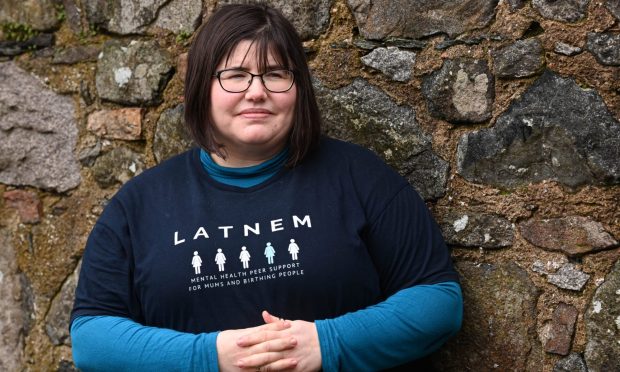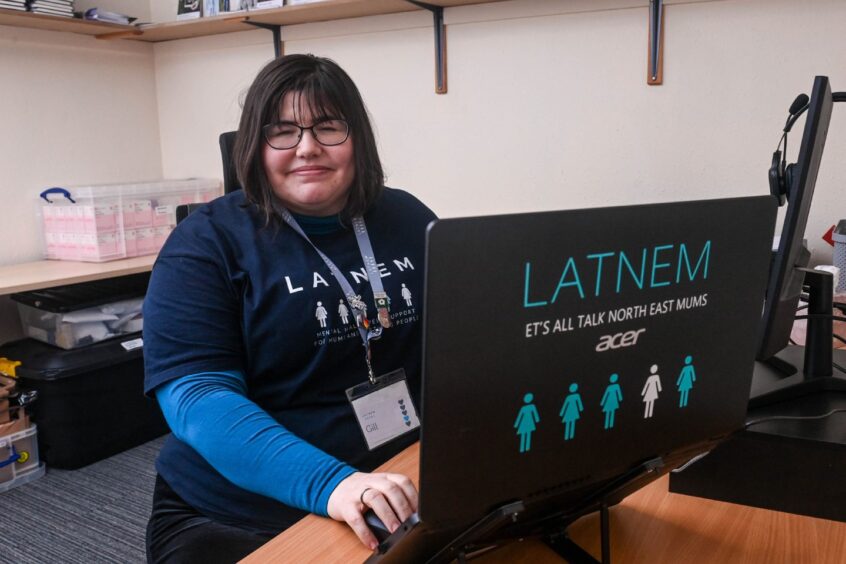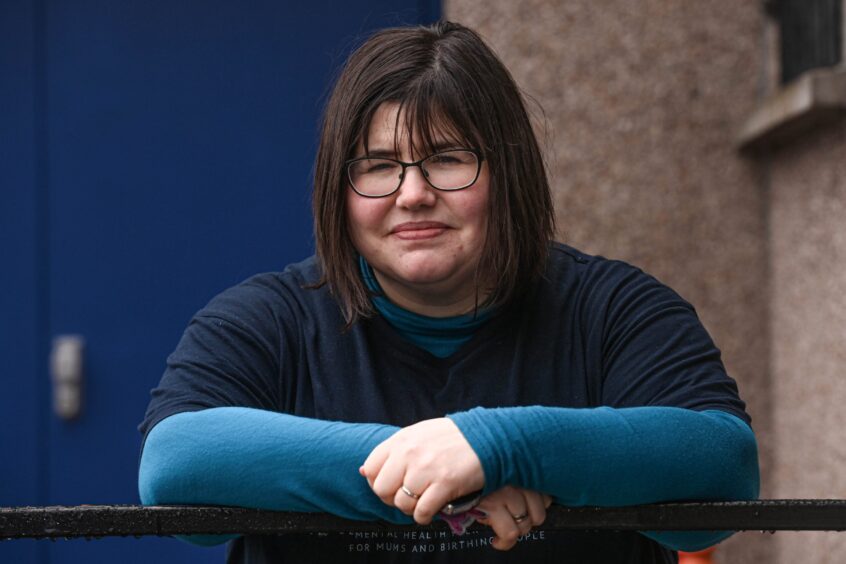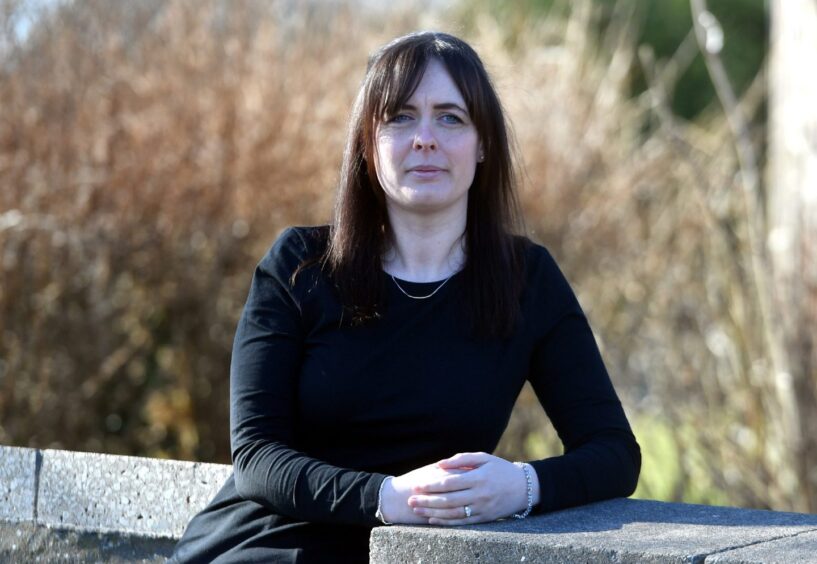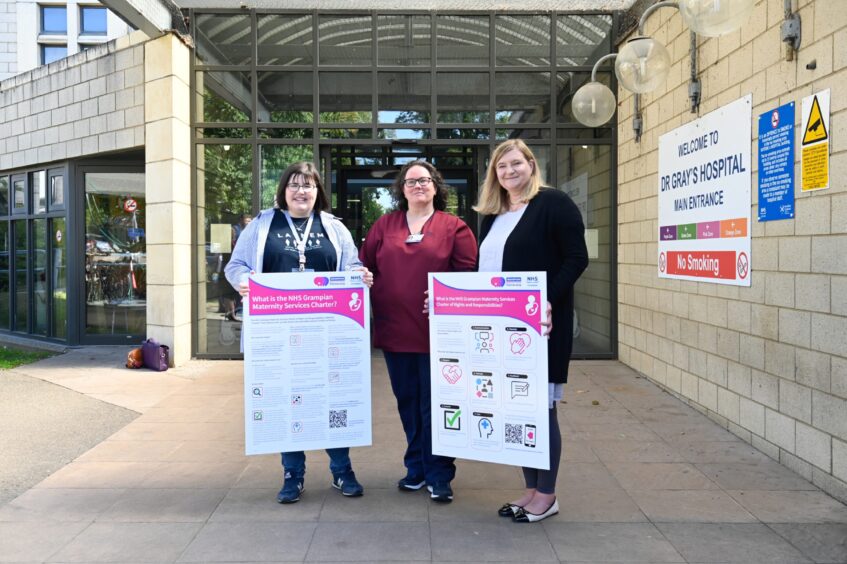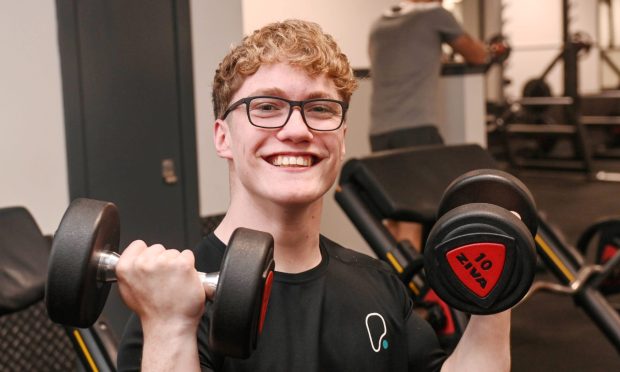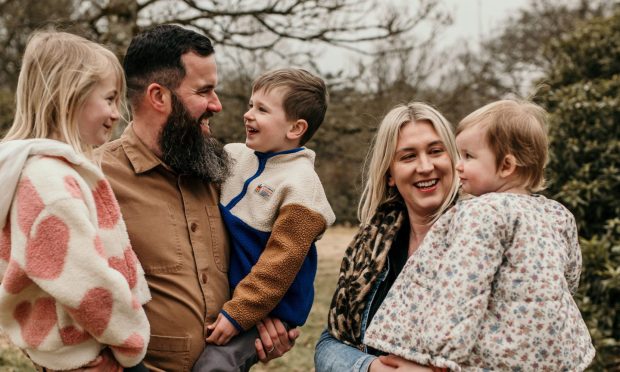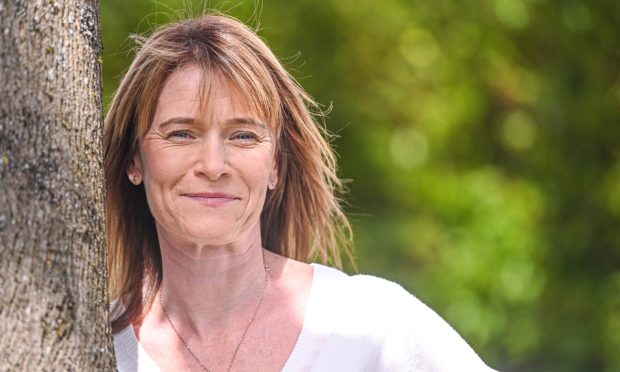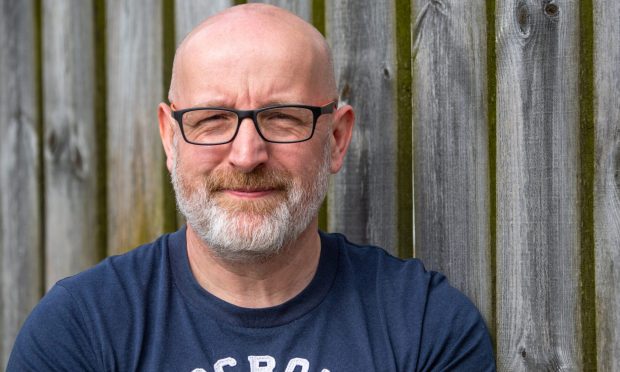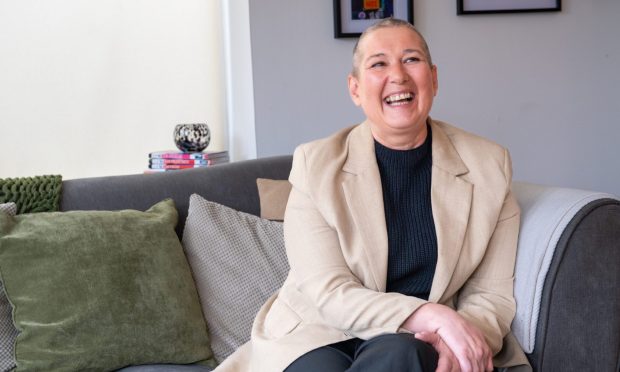When Gill Skene gave birth to her daughter in 2012 she suffered massive internal bleeding, losing four-and-a-half litres of blood.
Her life, and that of her baby, was saved but she suffered a mental breakdown in theatre. The situation left her so confused that she thought her daughter was dead and that the medical staff were lying to her.
Even when she was reunited with her daughter 36 hours later, she didn’t believe it. She thought the baby in her arms was a fake, a substitute placed there by staff to maintain their deception.
Less than two weeks later, and still traumatised, Gill tried to kill herself at her Oldmeldrum home.
“Had I taken my own life,” Gill says, “it wouldn’t have just been my life that’s affected, it would have been my child’s.
“It’s a devastating outcome for a child to lose a mother — it would have been a tragedy. And I don’t think anybody should have to face that alone.”
Labelled a ‘lazy new mum’
More than a decade later, Gill has recovered. She has a close relationship with her daughter and was able to go through pregnancy again with the birth of her second daughter.
But she has never forgotten how lonely and desperate she felt during the traumatic birth and in the months following it.
As well as having to deal with her own anxiety and depression, she faced disbelief from maternity healthcare workers who mistook her distance with her child as evidence she was simply “a lazy new mum”.
In 2020, she co-founded Let’s All Talk North East Mums (Latnem), a Inverurie-based peer-support group that helps north-east mothers battling mental health issues before pregnancy, during and after.
The group and its team of volunteers help the estimated one in five mothers who develop a mental illness in the ante/perinatal period.
Some will be struggling to cope with the demands of motherhood; judgement from others, for example, or pressure to appear like those perfect mums on social media.
Some will face the same suicidal thoughts Gill had, or even the threat that because of their struggles their child will be taken away from them.
All, however, benefit from support from people that, like Gill, have lived experience of maternal mental health problems.
“Holding each other up matters,” Gill says. “Without the peer support I received, I probably would have had another suicide attempt. But they kept me going until I could get the help I needed.”
‘I thought my baby had died and it was my fault’
Gill’s own traumatic birth experience was due to an undiagnosed condition that led to massive blood loss.
Her life was saved by blood transfusions, but her baby — quickly delivered— was immediately taken to the neonatal ward.
In the operating theatre, and suffering what she calls “a complete mental breakdown”, Gill couldn’t understand why her daughter wasn’t with her.
“I actually thought she had passed away and that was why they had taken her.
“I thought they weren’t telling me my baby had died because it was my fault and I wasn’t well enough to hear that sort of news.
“So, after 36 hours, when they brought me a baby I was totally convinced it wasn’t mine.”
Gill says the breakdown she suffered wasn’t adequately assessed and she was instead labelled a lazy mother. Staff wrote in her notes “lacking maternal effort”.
Meanwhile, she contracted sepsis, which went undiagnosed for weeks.
When she was discharged from hospital five days after giving birth, she went home and started hallucinating. About a week later she tried to kill herself.
“I just needed the pain to stop,” she says. “My thought process, if we can call it that, was either I will die or I will damage myself to such an extent that they will take me to a hospital that is not a maternity hospital, because at a maternity hospital all they saw was a lazy new mum.
“But what I needed them to do was to see me. Because I wasn’t well, and nobody believed me.”
Rage over dishwasher argument was final straw for Gill
Gill ended up in hospital for two months, not because of the suicide attempt, but because doctors discovered that a section of her baby’s placenta had remained in her uterus, requiring surgery. They also finally diagnosed the sepsis.
“When I was readmitted, one of the staff said to me. ‘Oh, so you ARE ill’,” Gill recalls. “That tells a story.”
The surgery to remove the placenta didn’t work, but two months later Gill delivered it herself.
But though medical staff said her mental health should now improve, it didn’t. Instead, says Gill, it continued to decline, until an argument one night with her husband over the dishwasher escalated horribly.
“He had stepped in between me and the baby and a rage overcame me like I had never experienced before or since,” she explains. “It was a primal rage, and if I’d had access to something I would have hit him with it.
‘At that point the plan was to kill myself’
Terrified of herself, Gill ran away and sat in a car park for three hours.
“At that point the plan was to kill myself or to disappear and become someone else,” she says.
Over time, however, her anger cooled. She realised she needed help and eventually made an appointment with a GP who diagnosed her with postnatal PTSD.
“Up until that point, I didn’t know it existed,” Gill says. “And I think very few people do. But birth trauma PTSD is a thing, it’s real.”
Despite the diagnosis it was still another seven months before Gill started receiving the counselling she needed and started to get better.
In that time, though, she discovered The Birth Trauma Association, a UK charity. Online support from the association, she says, both rescued her and gave her the motivation to start her own network.
“I suddenly found thousands of women who knew what I had gone through and had similar birth experiences. They had felt the same rage and shame and guilt and pain that I had felt.”
Starting Latnem support group to help north-east mums
Gill launched Latnem Peer Support with Linsey Singers, an Inverurie mum she met at a maternal mental health conference in Glasgow. Linsey had her own severe depressive episode following the birth of her son Jack.
Now almost four years old, the charity operates on the same concepts Gill discovered online.
There are weekly support meetings in Aberdeen, Inverurie and Elgin as well as through Zoom meet-ups and online chats.
At the heart of it, however, are support workers like Gill who know exactly what people are going through.
“Current statistics is that it’s one in five new mums will develop a mental issue,” she says. “That’s a lot, but to be honest, we think that’s quite a conservative estimate.”
The dangers of social media and the A96
Gill says the group hears a lot of traumatic birth stories in Moray, where Dr Gray’s Hospital in Elgin sends mothers who face complications to Aberdeen or Inverness.
“I don’t think there’s anybody who, having given birth on the A96 or travelled in labour on that road in the dead of winter, will be having a great time afterwards,” she says, pointedly.
At the same time, social media is further isolating new mums by showing them desirable — yet unattainable — standards of motherhood.
“[Mums] are trying to do it by themselves, while social media is telling them that they should be able to have it all,” Gill continues.
“That is extremely hard to achieve by anyone. But if you throw traumatic birth, depressive episodes and anxiety in there as well… it can be truly devastating.”
Gill says Latnem serves as a safe space for women going through one of the most trying periods of their lives.
The secret, she says, is providing something that was in short supply when she was unwell — no judgement.
“For me, there initially wasn’t an environment in which I could feel safe to share, to talk about what has happened to me and to find that kindness,” she says.
“But at Latnem, when you walk into that room you know that you’re not going to be judged for being unhappy or being sad or taking medication or going to see psychiatrists.
“Nobody there is going to think less of you.”
If you or someone you know is struggling, the Samaritans have a free helpline which can be accessed 24/7 by calling 116 123, or you can email jo@samaritans.org
To contact Latnem and find out about a support group near you, click here.
